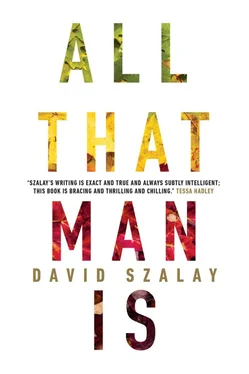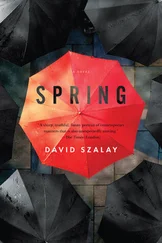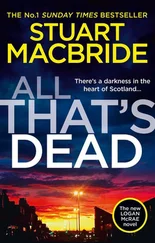His hand is on the cold glass. On the other side, green slopes leap up, the sides of the valley, high pastures and stands of pine. The trees, from here, look like toys. Pointy toy trees. He is looking at them. So still, everything up there.
‘Nice, the double aspect here,’ he says.
She is waiting near the door, on the other side of the room. ‘Yes.’
‘Is there a shop in the village that sells nice cheese?’ he asks.
Again, the question seems to take her by surprise. She says, ‘Nice cheese?’
‘A posh cheese shop,’ he says, turning from the window. ‘Is there one?’
‘There’s a cheese shop,’ she says. ‘I don’t know what you mean by posh, exactly.’
‘I’m sure you do,’ he says with an encouraging smile.
‘I suppose you could call it posh.’
‘Lots of nice cheese?’
‘Yes,’ she says with a single emphatic nod.
‘Fine. We need one of those. We need a shop that sells nice cheese. It’s important to the sort of people we’re dealing with. Their idea of what buying a property in France involves. La douceur de vivre . What time is it?’
She looks at her watch and says, ‘Nearly quarter to eleven.’
‘Mind giving me a lift up top?’ he asks. ‘I’d better have a look at the infrastructure up there, I suppose. So I can at least pretend I know what I’m talking about.’ He smiles. ‘Then we’ll have lunch.’
—
They leave the way they arrived yesterday, down the little avenue of linden trees. Immediately after leaving the village, though, they take a small turn-off that zigzags steeply up into the forest. She shifts from second to third to second as they take the steep turns.
Moves into fourth for a kilometre of open pasture. Sun. Farmhouse with deep eaves, time-blackened.
Then some more houses, almost a village.
All this land — what’s it worth? Fortunes here.
And more forest, then. And views, sometimes, through the trees, as they turn, and turn, of the valley, now falling away.
Second, third. Third, second, third. Her thin, tanned arm is permanently in action. Her elegantly sandaled foot. (Well-maintained toenails, he notices — hard pink shine like the inside of a shell.)
It takes twenty minutes to drive to the top.
‘Ah,’ he says, as they emerge from a final stretch of hugging shade and everything seems to open out. There is a lot of tarmac, suddenly, and further up, a major development, not so new — flats, a hotel maybe. Huts, houses. She parks on an empty expanse of tarmac in the shadow of the flats, and switches off.
There is no one around. Standing there in the sunlight he hears the throb of the pastures. And when the wind blows a quiet singing from overhead cables. Otherwise silence.
‘So, tell me about this,’ he says.
She starts talking about ski lifts and pistes.
Only half-listening to her, he has walked to the edge of the tarmac. Slopes fall away in slow undulations. There is a shuttered crêperie. The hum of insects. The ice-edged wind. And from somewhere, the lazy sound of cowbells, a sound like a spoon stirring something in a glass.
She is talking about ski school, École du Ski Français.
Yes, he knows memories of that. Long ago, that was. Snowploughing in line behind the vermilion uniform. Foggy day. Wet snow.
He feels the sun on his eyelids. The wind on his skin. Hands. Face.
With his eyes shut, he hears the cowbells, fading in and out on the wind.
Life has become so dense, these last years. There is so much happening. Thing after thing. So little space. In the thick of life now. Too near to see it.
The sun on his eyelids.
Cowbells fading in and out on the wind.
Warmth of the sun.
Wind on his skin.
To withdraw, somehow, to just this.
Hopeless.
It’s not a joke. Life is not a joke.
He opens his eyes.
Shimmering grass, shivering.
She says, ‘Eighty per cent of the slopes are north facing. The spring skiing here is particularly nice.’
This is it. This is his life, these things that are happening.
This is all there is.
She is standing next to him, quite near him.
‘Yes?’ he says. ‘How much is there? Skiing. Kilometres.’
‘Including the whole Grand Massif?’
‘Whatever.’
‘About two hundred and sixty kilometres.’
‘Wow.’
She says, ‘Including Flaine, Morillon, Les Carroz, Sixt and Samoëns.’
‘And they’re all interlinked, with lifts?’
‘Of course.’
‘One pass covers them all?’
‘You can get it,’ she tells him.
‘Okay,’ he says. Nice to have some facts.
For a moment he shuts his eyes again but there is nothing there now.
—
Lunch. A few minor confidences over a pizza. She was at art school in London. Then dropped out…
‘Why?’ he asks.
‘I fell in love.’
‘Love,’ he says. ‘It messes everything up, doesn’t it?’
‘You’re very cynical.’
‘Yes, I probably am,’ he admits.
‘Isn’t love the whole point?’
‘The whole point of what?’
‘Of life.’
‘So I’ve heard. What did you do then?’ he asks. ‘After you dropped out.’
She found a job as an estate agent.
So they talk about estate agenting — he did that too, once. And is doing it again now. ‘That seems to be my fate,’ he says.
‘Do you believe in fate?’ she asks, amused.
‘I do now,’ he says.
‘I don’t.’
‘Of course you don’t,’ he says. ‘You’re too young.’
She laughs at that. ‘Young?’
‘How old are you?’
She is twenty-nine.
‘I would have said twenty-five.’
‘Ach,’ she says, pleased.
He smiles.
‘How old are you?’
‘I am forty-four.’
‘And when did you start believing in fate?’
‘I don’t know,’ he says.
He is enjoying talking to her — there is something fresh and straightforward about her — so he tries to think of something else to say, something which is true. He says, ‘When I woke up one morning and realised it was too late to change anything. I mean, the big things.’
‘I don’t think it’s ever too late to change things,’ she says.
He just smiles. And he thinks: That’s the thing about fate, the way you only understand what your fate is when it’s too late to do anything about it. That’s why it is your fate — it’s too late to do anything about it.
‘So it’s something that only exists in hindsight?’
‘I suppose so.’
‘So it doesn’t really exist?’
‘Does that follow? I don’t know,’ he says. ‘I’m not a philosopher.’
‘Are you happy?’ she asks, putting ketchup on the last slice of her pizza.
‘Yes, I think so. It depends what you mean. I don’t have everything I want.’
‘Is that your definition of happiness?’
‘What’s yours?’ And then, while she thinks about it, he says, ‘I don’t have a definition of happiness. What’s the point?’
‘You must know whether you’re happy or not.’
‘I’m not unhappy,’ he says, and then wonders whether even that is true.
‘That’s not the same thing,’ she says.
‘And you?’ he asks. ‘Are you? Happy.’
‘No,’ she says, without hesitation. ‘I mean, my life isn’t where I want it to be.’
He wonders whether to ask her where she wants her life to be, whatever that means. Then he decides, after taking a sip of water, to leave it at that.
They talk about skiing.
After lunch they walk together to Les Chalets du Midi Apartments. Autumnal pink is starting to appear in the neat beech hedges that line the clean streets of the village. ‘Now I’ve got to do my thing,’ he says.
Читать дальше












